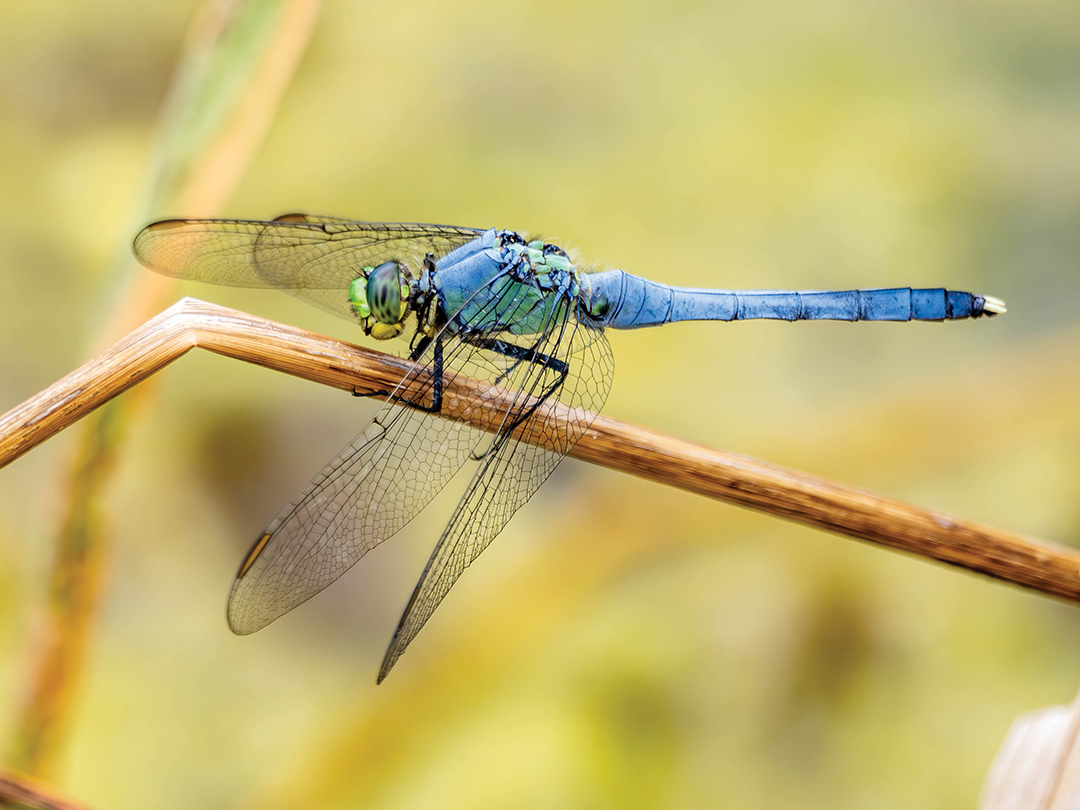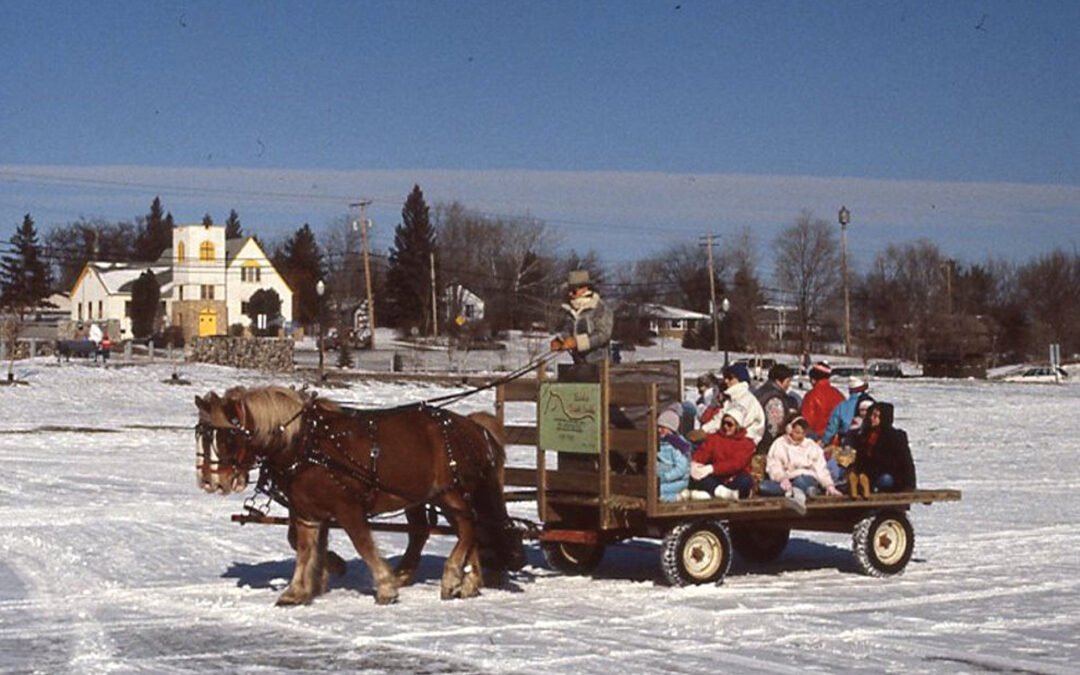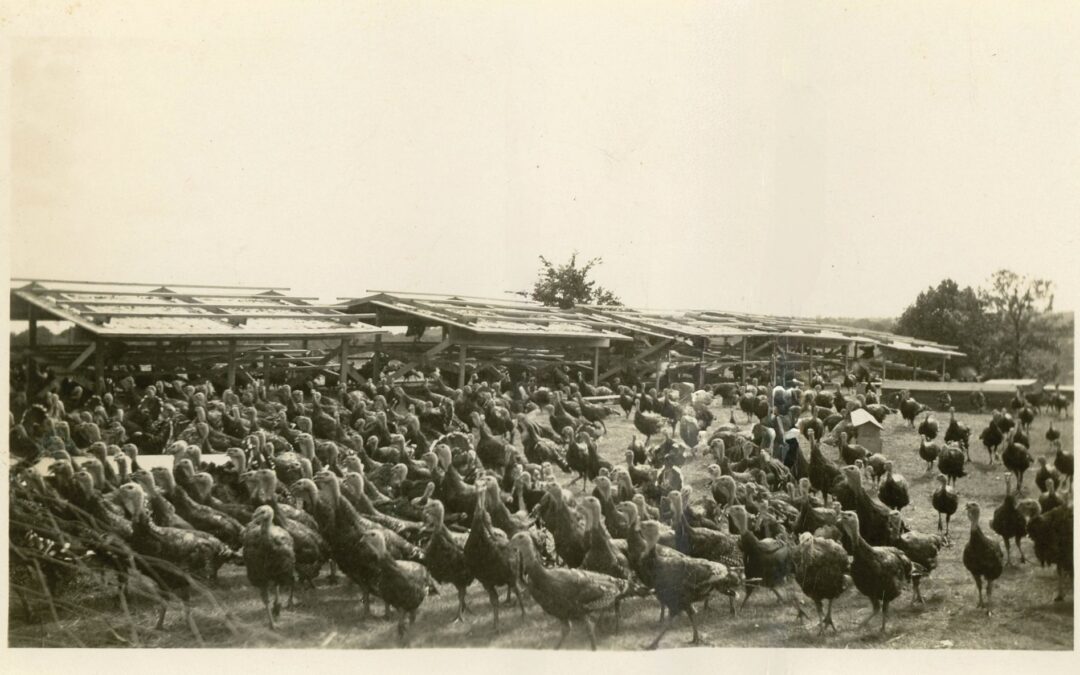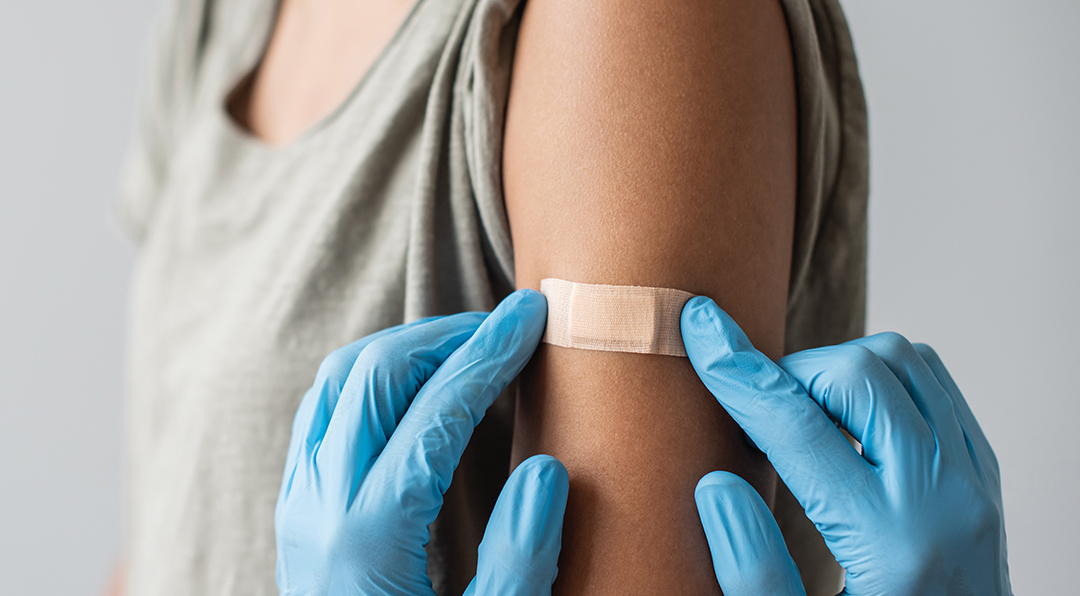
Eastern Pondhawk, Erythemis simplicicollis. Photo: Cathy Perkins
The Minnesota Dragonfly Society works to understand and protect our Odonata neighbors.
Headquartered in Plymouth, a unique research and conservation organization is working to uncover the quirks and ecological impact of a captivating order of insects. Founded over a decade ago as a nonprofit and run entirely by volunteers, the Minnesota Dragonfly Society (MDS) is dedicated to researching dragonflies and damselflies (dragonflies’ more diminutive relative) throughout the state and providing educational opportunities for professional scientists and curious citizens alike.
Ron Lawrenz, a longtime board member, has a background as an aquatic biologist, having spent 14 years with the Minnesota Department of Natural Resources and 30 years with the Science Museum of Minnesota. “Most people don’t realize that dragonflies are aquatic insects for the most part,” Lawrenz says. “They live most of their life in water [as nymphs]. The flying adult is only a short part of their lifespan.”
MDS is a mosaic of enthusiasts. “We have a number of professionals from state agencies and universities,” Lawrenz says. “But we also have a lot of citizen scientists who are just interested in dragonflies.” Many people discover the society through its various programs and workshops. The group hosts between 20 and 40 events annually, often at major festivals like the Minnesota State Fair and the Minneapolis Monarch Festival.
A significant part of the society’s work revolves around training volunteers to identify dragonflies, which is crucial for ongoing research. “We organize workshops to teach people how to identify both adult dragonflies and their nymphs,” Lawrenz says. “We bring in national experts to help with this training.” This citizen science approach enables volunteers to contribute valuable data about the distribution of dragonflies across Minnesota.
Historically, there’s been a broad lack of knowledge about the state’s dragonfly populations, Lawrenz says. “The state of Minnesota was very poorly surveyed for dragonflies and damselflies. We just didn’t know what we had and where.” Thanks to efforts like the Minnesota Odonata Survey Project, led by naturalist Kurt Mead, researchers are beginning to fill in the blanks. (Odonata is the order of predatory flying insects that includes dragonflies and damselflies.)
When the survey was completed in 2012, Mead and a core group of enthusiasts continued the work as MDS. “We now have a better understanding of the range maps of these insects and their specific habitat requirements,” Lawrenz says.
The work is not just academic; it has real-world implications, particularly concerning climate change. Dragonflies are indicators of environmental health, and shifts in their populations can signal larger ecological changes. “Their ranges are changing, and they have an important part to play in all that,” Lawrenz says. “In some fishless lakes, they are the top predators. Certain dragonflies are a keystone species in their ecosystems.” In fact, Lawrenz says, dragonflies are incredible predators. Their catch rate—the number of insects, like mosquitos, they catch per attempt—is north of 90 percent, helping keep peskier critters at bay.
As MDS continues its research, the discoveries keep coming. “We have found dragonflies in Minnesota that were previously thought to only exist near the Arctic Circle,” Lawrenz says. “There’s a lot of potential for finding new populations.”
For those eager to get involved, MDS offers opportunities. “We do training programs for both adults and kids,” Lawrenz says. “This is a growing thing, and it’s become a kind of side thing for a lot of bird watchers, because they’re seeing dragonflies at the same time.”
Currently, there are about 154 species of dragonflies and damselflies documented in Minnesota. “We suspect there are a lot of species out there that we just haven’t seen yet,” Lawrenz says. “Minnesota is big, and there are a lot of wetlands and lakes to explore.”
Find upcoming events and more information at mndragonfly.org. Visitors can also request information about hosting MDS educators at private events.
Minnesota Dragonfly Society
info@mndragonfly.org
Facebook: Minnesota Dragonfly Society






















